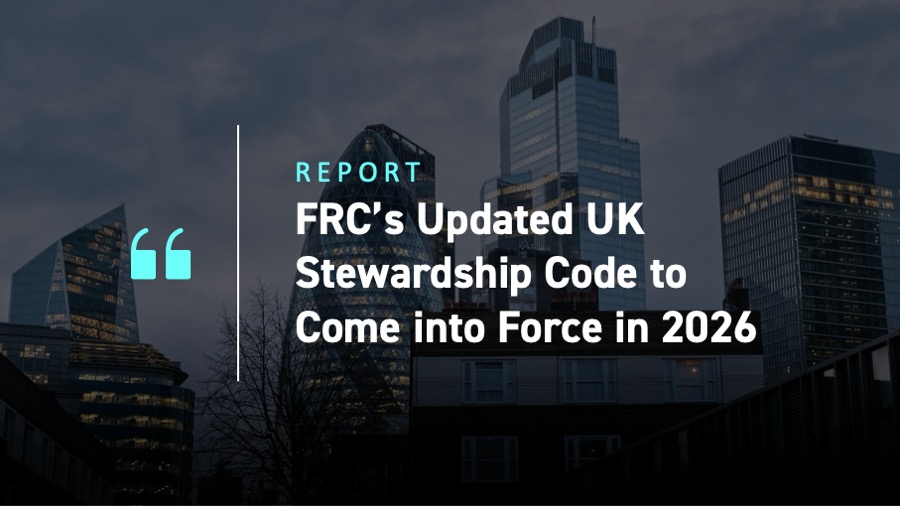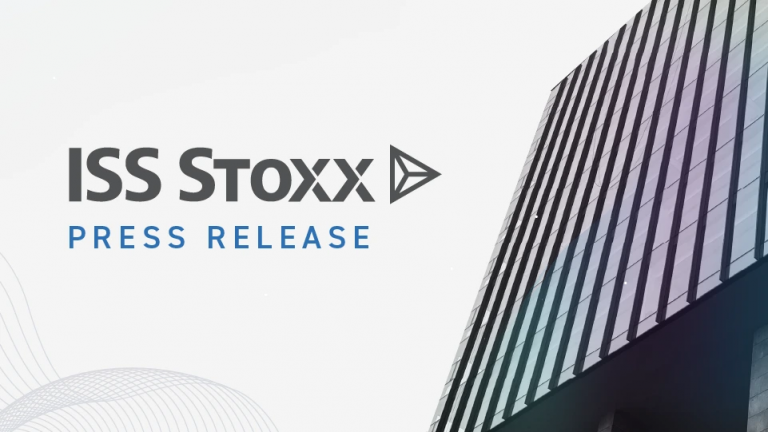The Financial Reporting Council (FRC) has published its UK Stewardship Code 2026, which represents a significant overhaul from the previous iteration released in October 2019. The new Code will come into force from 1 January 2026.
In addition, in an effort to support a smooth transition, the regulator has determined that 2026 will be treated as a transition year. As a result, all existing signatories submitting a renewal application will remain on the signatory list throughout this period.
The updated Code comes amid what has been seen as a wider push by the UK government to cut financial regulation and red tape to improve economic growth in the UK.
It continues to be directed at the following groups:
- Asset owners – including pension schemes, insurers, foundations, endowments, local government pension pools and sovereign wealth funds.
- Asset managers – which manage assets on behalf of UK clients or invest in UK assets.
- Service providers – investment consultants, proxy advisers and engagement providers that support asset owners and asset managers in exercising their stewardship responsibilities.
According to the FRC’s overview, the new Code has been divided into two parts.
The first – the ‘Policy and Context Disclosure’ – asks signatories to provide information on the organisation in question, its governance and resources, including links to its relevant policies. Applicants to the Code will be required to submit a Policy and Context Disclosure to the FRC every four years, or when changes to the organisation necessitate a new one to be put forward to ensure continued alignment.
The second – the ‘Activities and Outcomes Report’ – is designed to illustrate how signatories have applied the Code’s principles through the activities they have undertaken in the preceding year, as well as the outcomes of these activities. Unlike the Policy and Context Disclosure, applicants to the Code will be required to submit an Activities and Outcomes Report to the FRC on an annual basis.
This bifurcation of the reporting process has been seen as a lessening of the burden on signatories. It has been reported that the CEO of the FRC, Richard Moriarty, decided to “take an axe” to the Code in what has been characterised as a streamlining of reporting requirements.
However, the increased emphasis on outcomes reporting, as illustrated by the annual Activities and Outcomes Report, has also been interpreted as a continuation of the FRC’s earlier attempts to address the formulaic nature of reporting. Indeed, one of the regulator’s common criticisms in relation to corporate disclosures against its UK Corporate Governance Code was that ‘comply or explain’ reporting was often ‘boilerplate’ in nature, providing little detail on what governance practices a company has actually carried out (for more information, see: Proposed Changes to the UK Corporate Governance Code’s ‘Comply or Explain’ Principle).
This interpretation is supported by the FRC’s press release, which states that:
“The [new Stewardship] Code features fewer principles and shorter ‘how to report’ prompts instead of detailed reporting expectations, helping to eliminate ‘box-ticking’ approaches to reporting against the principles. Early evidence suggests signatories may be able to reduce reporting volume by 20-30% while maintaining quality.”
Indeed, much of the Code has been streamlined to remove prescriptive wording, which is in line with the FRC’s earlier approach to the updating of its UK Corporate Governance Code in 2024 (for more information, see: Latest Version of the UK Corporate Governance Code Released).
In addition to the bifurcation of the Code into two parts, the press release highlights the following amendments:
- An enhanced definition of stewardship, which focuses on the creation of long-term sustainable value for clients and beneficiaries.
- A more flexible reporting structure, which allows signatories to either submit separate Policy and Context Disclosures and Activities and Outcomes Reports or combine them into a single document.
- Targeted principles, with some applicable to different types of signatories.
- New optional guidance to provide tips and examples to support effective implementation.
Finally, it is noted that the previous principles under the 2020 Code for asset owners, asset managers and service providers reporting against ESG issues (Principle 7 for the two former and Principle 5 for the latter) have been removed completely from the updated Code.
The 2026 Stewardship Code for asset managers and asset owners
For asset managers and asset owners, the Policy and Context Disclosure largely mirrors some of the principles outlined in the Code’s previous iteration. As with other sections of the Code, some principles have been streamlined. Nonetheless, others have become more detailed.
For instance, under Principle A of the new Code there is greater emphasis placed on the breakdown of assets under management (AUM), as well as new text on the disclosure of the proportion of AUM invested directly or indirectly through an external manager.
In addition, as per the previous iteration, the new Code recommends the disclosure of a description of signatories’ stewardship policies and processes, how they are reviewed, and whether these reviews are undertaken internally or involve external assurance. However, new wording also calls for disclosure on how often these policies are reviewed.
The new Activities and Outcomes Report section for asset managers and asset owners also places greater emphasis on the use of external managers and stewardship service providers than previously. Principle 5 calls on signatories that use external managers to illustrate how they interact with external managers, including the expectations they set for them to engage and exercise rights and responsibilities on their behalf.
Similarly, Principle 6 requires signatories to disclose information on how they have ensured that the services provided by stewardship service providers (i.e., proxy advisers, investment consultants and external engagement services) support effective stewardship. This largely mirrors Principle 8 under the 2020 version of the Code, however with some slight tweaks on what it expects to be disclosed. For instance, unlike the previous Code, which asked signatories to monitor their use of proxy advisers to check that their shares were voted in accordance with the investor’s policies, the new Code asks for signatories to disclose how they use proxy advisers and how they have monitored the “quality and accuracy of their services”.
The 2026 Stewardship Code for service providers
As noted above, one of the changes to the Stewardship Code is targeted principles for different types of signatories. The new Activities and Outcomes Report section for service providers largely represents a reiteration and clarification of many of the principles and expectations outlined in the earlier version of the Code. For instance, the principle on the identification and response to systemic risks to promote well-functioning financial markets largely remains as it was, although in the new Code it has become specifically targeted at investment consultants, which is in line with the FRC’s new targeted principles.
Also in line with this approach is the presence of a specific principle for proxy advisers. Principle 2 of the Activities and Outcomes Report section for service providers calls for proxy advisers to disclose how they ensure “the quality and accuracy of their research, recommendations and voting implementation”, as well as their wider engagement not only with clients, but also wider stakeholders that have specifically requested engagement. The Policy and Context Disclosure of the new Code states that proxy adviser signatories should disclose the approximate proportion of their clients who utilise one or more customised voting policies and the proportion who utilise one or more of the organisation’s own voting policies, either directly or on behalf of their end clients.
According to Mr Moriarty, these “new dedicated principles for proxy advisers [will] increase transparency in the investment chain”.
ISS will continue to monitor developments in relation to the updated Stewardship Code, as well as disclose in accordance with the Code’s expectations in line with ISS’ role as a service provider signatory.
By: Tom Inchley, UK Research, ISS Governance




